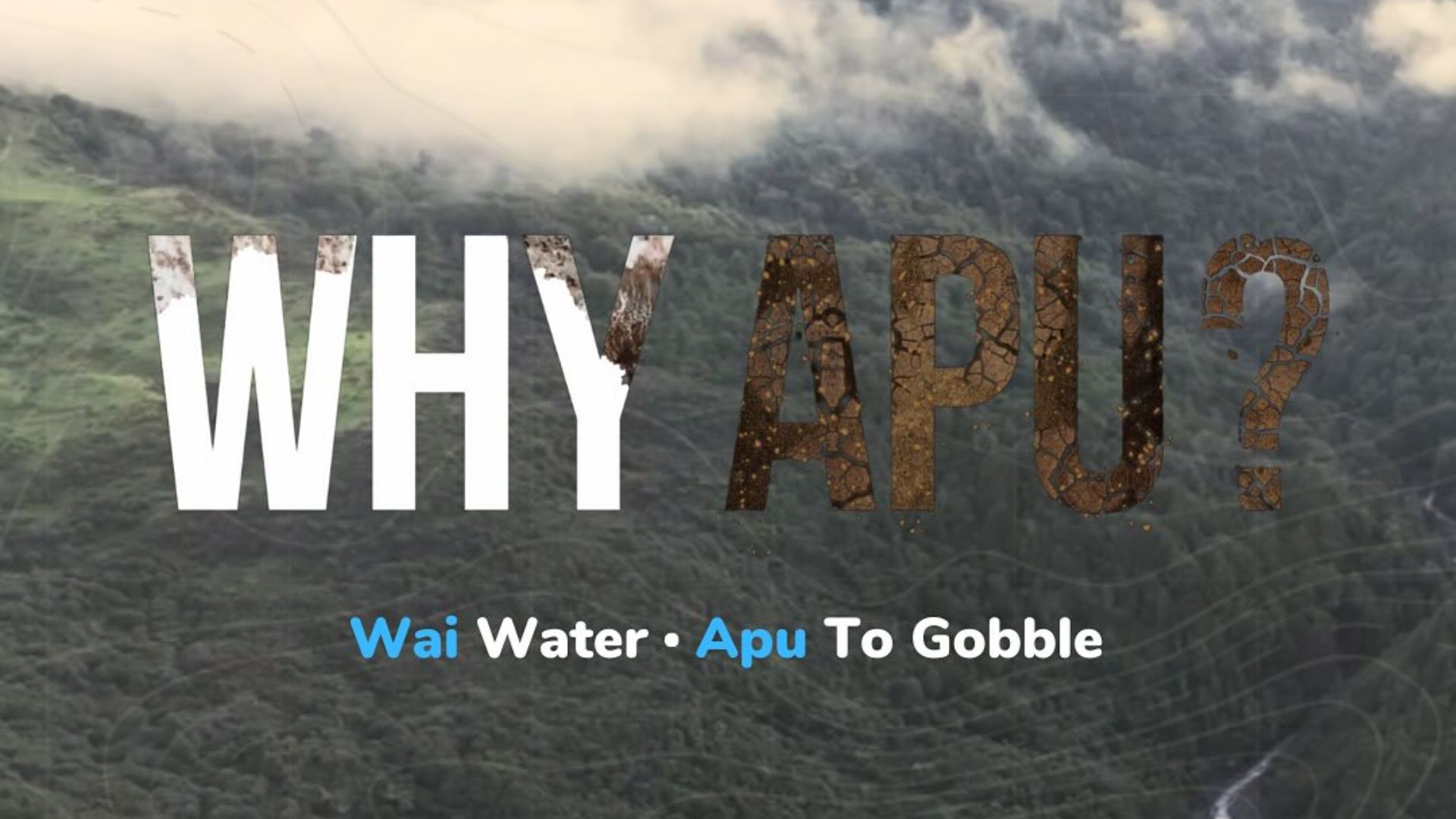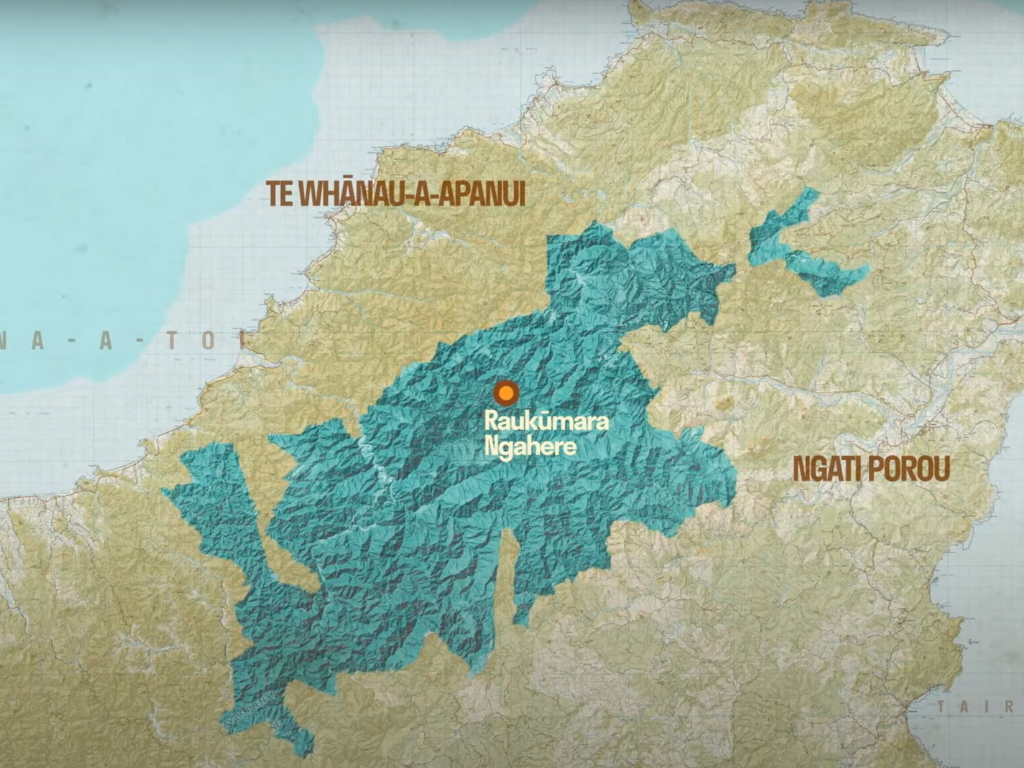Silent forests with chewed-out undergrowth and mountainsides slipping away like softened Weetbix: a new documentary series unveils crisis and hope in the heart of the East Cape.

Why Apu? is a five-part series showing us the despair of a once-thriving forest. Why is the East Cape being consumed (apu), and what are the iwi living on the eastern and western sides doing to care for their ancestral forest, rivers and sea? It’s a story of loss but also of hope.
On the brink
An ancestral hīkoi (walk) from east to west in the Raukūmara forest once required a machete to whack through dense undergrowth, birdsong echoing each step of the way.
But that was decades ago. Now, on that same route, it’s an open freeway with no undergrowth and eerily silent.
The stark transformation is poignantly captured as we journey alongside locals such as Tui Aroha Warmenhoven (Ngāti Porou) and Graeme Atkins (Ngāti Porou and Rongomaiwahine), who have watched their ancestral home “go from the garden of Eden to an empty shell.”
The forest is described as the “umbilical cord” of the flanking iwi, Ngāti Porou and Te Whānui a Apanui, sustaining and nourishing these communities for centuries.
But for decades, the ngahere (forest) has been a feast for introduced pests: deer have stripped trees and mowed down the undergrowth, while possums have consumed the canopy.
Add in farming, forestry and massive storms and the forest is on the brink of ecological collapse. The Waiapu Awa (river) has some of the highest sedimentation in the world.

Restoring mauri and mana
Two years ago, the Raukūmara Pae Maunga restoration project began, with iwi in the lead and the Department of Conservation in a supporting role.

The project addresses ecological degradation but also fosters a renewed sense of kaitiakitanga (guardianship).
Local people have been employed to be rangers, deer cullers, predator controllers and to engage with the community to make sure everyone knows what’s going on with the project.
The documentary navigates complex issues, such as using 1080 to control possum populations, highlighting the transformative power of iwi-led initiatives in overcoming scepticism and fear. It’s people from the community talking and convincing their neighbours, friends and whānau and bringing them on the journey of restoration.
We even hear from a former anti-1080 advocate turned project staff member, underscoring the potential for change when driven by shared purpose and understanding.
Everything is connected to everything
It’s not just the ngahere that is in crisis – as with everything in nature, it’s connected to much more. The series magnifies the deep connection iwi share with their ancestral whenua (land) and the profound impact the forest’s health has on everything downstream.
Episode two of Why Apu? focuses on the erosion issue facing the Waiapu Awa, which runs through the Raukūmara.
Research shows the awa carries 35 million tonnes of suspended sediment to the sea each year. This is among the highest rates of river sedimentation in the world and impacts the local community’s ability to collect kaimoana (seafood).

Episode three covers the impact of forestry slash and the post-Cyclone Gabrielle cleanup and recovery. Episode four looks at climate change in the area, the signs of which are already visible. Episode five explores community solutions and emphasises the urgency of action within a limited time frame.
In essence, “Why Apu?” is a wake-up call and reminder of the unbreakable ties between humans and nature.

